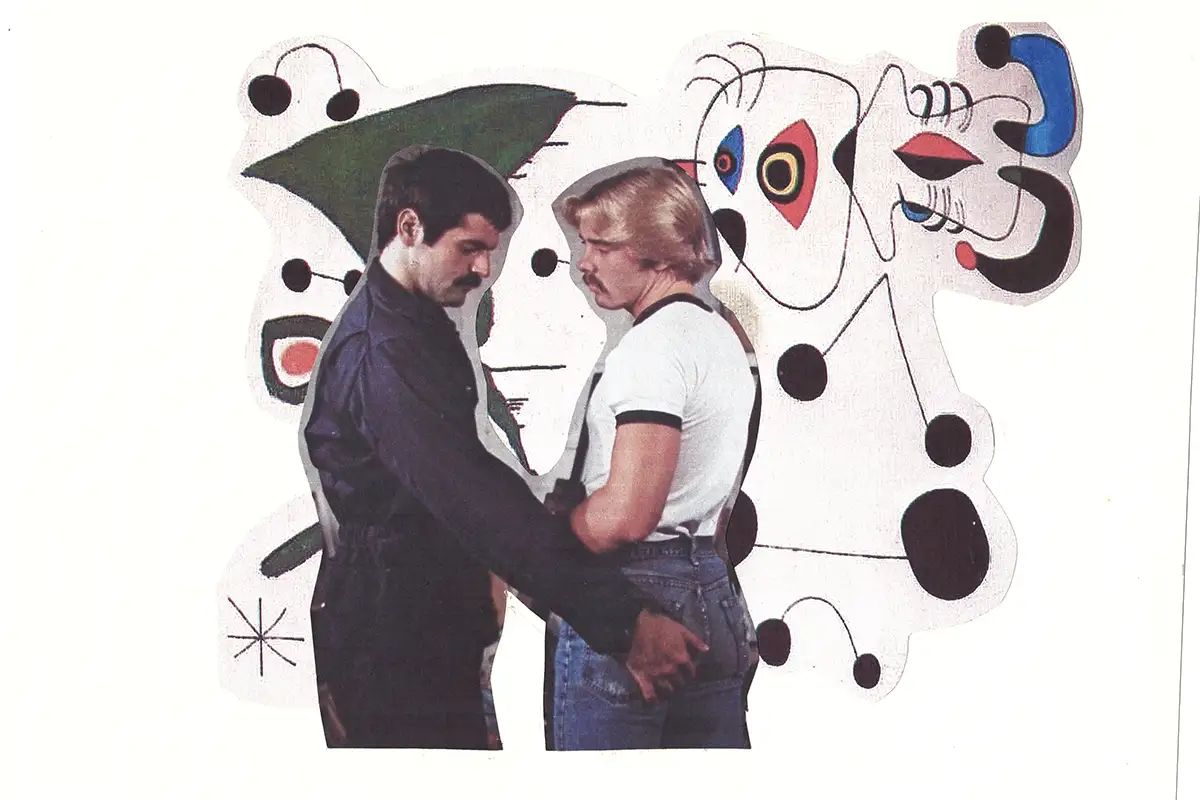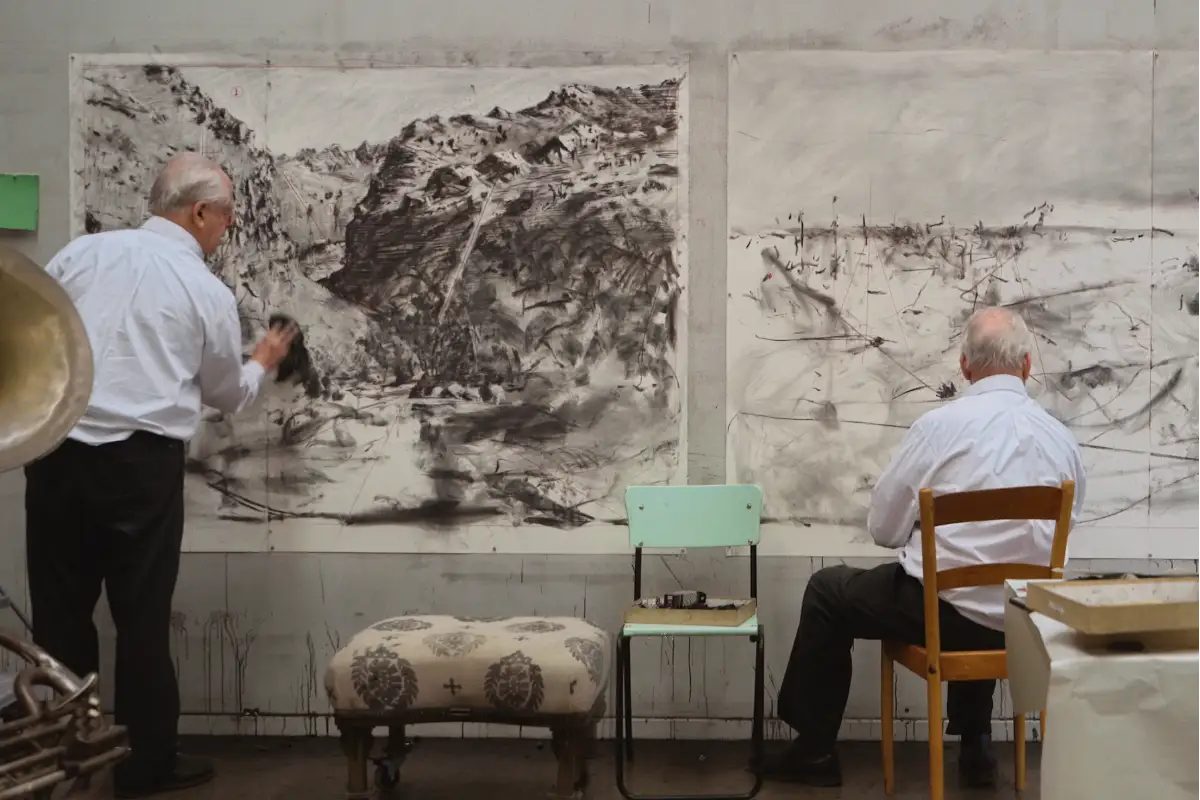Women rule in Happy Hour, men merely persist at the side-lines. Granados smiles, «I could not imagine writing a novel about these girls trying to find boyfriends»
Marlowe Granados Happy Hour
Marlowe Granados début novel, Happy Hour, beguiles the essence of excitement that in reading the tales of Isa and Gala galivanting in New York, I found myself yearning for a hot summer of carelessness and allure. Two best friends, in their early twenties, Isa and Gala ignite the delight in living with little money nor any fall-back plan; for when there’s a will, there is a way, and there is seemingly a way in New York.
The depiction of young women hungry for the zest of life whilst living under the struggle of modern-day capitalism can often yield a narrative that focuses much on the drudgery and danger of our present world. If not a focus on the vulnerability of being a female or the taxing labour of crafting a personal brand in a world of individualistic meritocracy, Happy Hour offers us something else.
Boasting this uniqueness, Granados marries both struggle and precarity with indulgence and decadence in which she paints a picture of the ebbs of female life today. «I wanted to take all the high points of life but also the effort that it takes to pursue that kind of thing and concentrate it in this world», she says. Happy Hour’s poise and nature births a somewhat novel genre of contemporary fiction – one that celebrates the virtues and integrities of being a hustling young woman. Narrated in the first person by the character of Isa, she knows more than she lets on. «It’s inconspicuous. I look as if I am being aloof and texting, but I am noticing and observing all the time» writes Granados.
Happy Hour’s charm comes much from Isa’s narrative voice, whereby amid her accounts of socialising in the Hamptons or attending dinner parties, she unwraps the neat moral philosophy which she has devised for living. She writes, «I have a sense of urgency in everything I do; being without one is unattractive. My urgency is what gives me character. I am always rushing in and out of doors. To think everything is available to you each day is foolish».
Lampoon introducing Marlowe Granados
In her speculation of love, fathers, friendship or money, the discernment and perception she withholds make her a figure whose voice sharpens the nuance within the events that take place in the book. Granados says «When I was writing her, I knew I was basing a lot on a skeleton outline of myself of how I was and how I am and who I am, but she was such a voice in my head for so long that she became her own thing. For a first novel, ultimately, I created this big character and the success of the novel comes from her and how distinct her voice is».
When Isa and Gala arrive in New York, it isn’t long before the leverage of social ascent in the city illustrates it as a place full of individuals yearning to thrive. While the girls uphold their tastes, their antipathy towards those who hoard capital is sustained throughout the novel. Early into the book, Isa declares that the girls must, whilst roaming the city, stay educated and endeavour to learn something new. They attend a talk with a French economist that Isa discovered in her copy of the New Yorker.
In listening to a justification of increasing inequalities, Gala puts up her hand to interrupt, «Why are you pretending to be concerned? It’s not like any of you are getting the raw end of the deal». In asking Granados about undertones in the book of their aversion to money and status, she says: «The attitude of these girls is like money is fake and it’s funny. It’s funny that people have this money and they act a certain way because of it and there is such a foil to that kind of attitude and that’s the kind of subversive fun of those characters, especially when they’re at a party and surrounded by people like that».
Class and social status
The novel does pose obvious questions about the idea of class; Granados writes of how New York’s social currency is wedded by who and what you are; in their realm, titles and status are paramount to your nature. Thus, Happy Hour offers an opportunity to peer into the world of systems and policies which dictate the social fabrics of the middle to upper classes.
Granados says, «The way that the girls talk and especially Isa, in the way that she manoeuvres through all these different social groups is the fact that she does have all these rules and because of that she has created this knowledgeable web and it is advanced the way she socialises».
While social capital remains the driving tool for survival in New York, more subtly it is the language and social cues which through acquisition, the girls move between a plethora of worlds which have not been granted to them out of born affluence.
Women’s mentality towards love
While romantic encounters are scattered through the book, Happy Hour is not a novel about love or the quest of finding a soul mate. Quite the opposite, Granados acknowledges and cherishes the beauty of the transient meetings with those who touch us – signalling to perhaps the way in which attitudes to love should be framed more in appreciating things for what they are, rather than what they could have been. She remarks, «I could not imagine writing a novel about these girls trying to find boyfriends».
The character of Isa does not appear to be satiated by the male attention she receives or doesn’t receive over their summer in New York. But this, for her is not her prerogative. Granados writes «If love happens, who am I to deny a natural thing, even if it only lasts till Friday. I’m twenty-one – an unserious age». In speaking to her about this, we reflected on much of the present-day attitudes towards finding love and how often, women struggle when it comes to seeking out a love which they can design and idealise for themselves.
She says, «You have to ask yourself, but what do you want? Again, women are good at being pleasant to be around. I want the mentality to shift from waiting for someone to choose you to being the person who chooses. This is something you never get a handle on, but it is something you have to constantly work towards for sure »
Marlowe Granados and the patriarchy
Granados depiction of the patriarchy alludes us to the multitude of ways in which women are abashed into palatability, compromising themselves for the agreeance and fulfilment of men. The encounters with male characters throughout the book dig into the subtleties of how men often anticipate and overestimate their ability to predict the character of a woman, before even knowing them.
Granados writes of perhaps the most pertinent aspect of our patriarchal struggle, which begins in the home – Fathers. She says, «Everyone knows, that families run perfectly well without Fathers. Fathers are a source of aggravation». This implores us to think about how men and women are at times at conflict, which in Happy Hour, is presented through the resistance against the confident woman.
Granados says, «Men are often intimidated by people who are truly themselves all the time. That also brings up their own issues of their own identity». She continues, «When you have someone that’s themselves and confident in their approach and is just going to say what they want all the time, there’s also this struggle that you won’t be able to have the upper hand».
Happy Hour and the freedom of being young
Happy Hour is foremost an argument for optimism and hope. The endearment of the novel comes from the vicarious excitement you experience from reading about the girls and their understanding of being young. Isa’s character relishes the thrill in being able to change her life at any one minute, she says, «I have been able to change the way my future looks with a mere suggestion».
In this way, Granados takes a lot of the anguish and fear that young people feel, especially at present, and reframes somewhat precarious living into a wealth of possibilities of what could be. As Granados explains, it is the girls’ ability to be carefree, in spite of all the reasons they have which signal them to not be. She writes, «The only way to achieve even the veneer of such freedom is to resist the weight of being pulled down by everything».
Marlowe Granados
Writer and filmmaker, Marlowe Granados co-hosts The Mean Reds, a podcast dedicated to women-led films, and her advice column, “Designs for Living”, appears in The Baffler. After spending time in New York and London, Granados currently resides in Toronto. Happy Hour is her début novel.




















